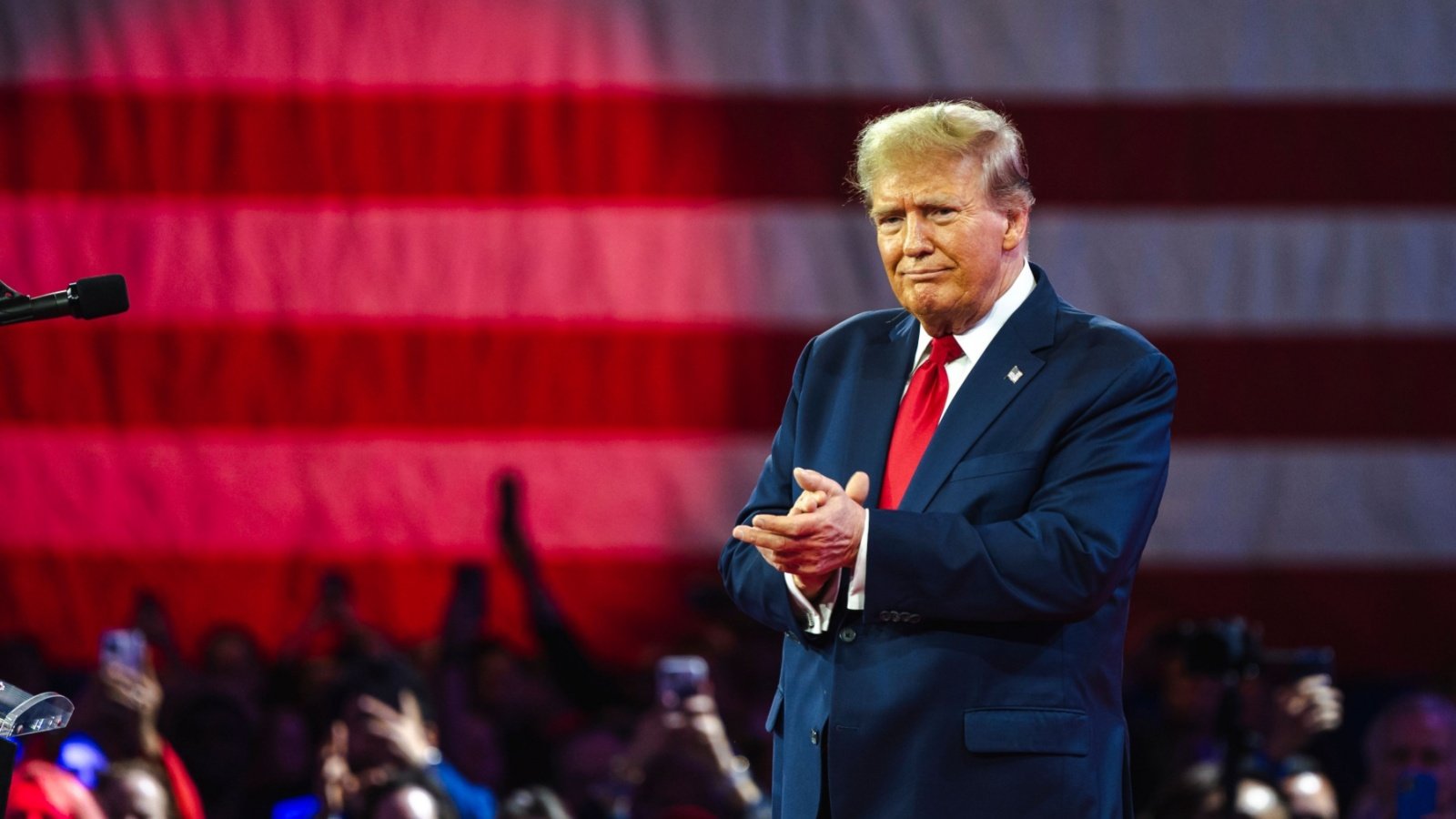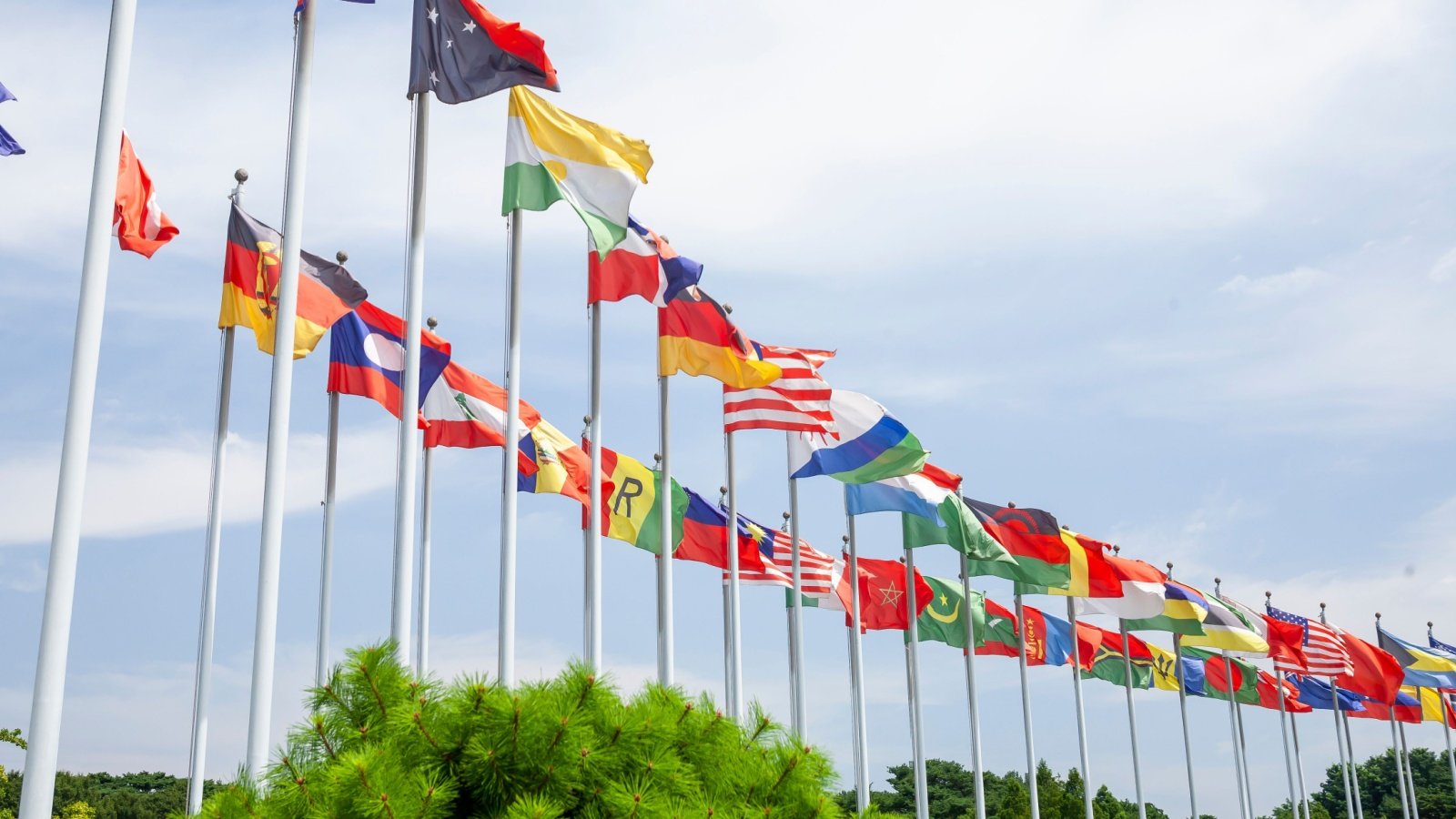Religion is becoming less central in many societies, influenced by shifts in cultural values, technological advancements, and changing personal beliefs. As people increasingly prioritize personal freedom and empirical understanding, traditional religious institutions are finding it harder to resonate with modern audiences. This trend reflects a broader move towards individualized spiritual experiences over collective religious practices.
Recent studies show that only 16% of young adults globally identify with organized religion, highlighting a significant shift from past generations.
Understanding why religion is fading in societal importance offers insights into how individuals are reshaping their spiritual lives in the 21st century.
Rise of Individualism

Modern society celebrates personal independence and self-determination, values that can conflict with communal religious doctrines. As people prioritize personal growth and self-care, communal religious activities might take a back seat. This trend is visible in the increasing number of people who prefer to tailor their spiritual practices to fit their lifestyles.
Education Levels

Higher education levels correlate with lower rates of religious affiliation. Educated individuals often possess critical thinking skills, leading to questioning of existential and philosophical assertions made by religions. As global education levels rise, so does religious skepticism.
Spiritual but not Religious

The “spiritual but not religious” demographic is growing, representing those who reject organized religion but still feel a connection to spirituality. This group finds traditional religious structures too restrictive, seeking a more personal, less formalized spiritual path.
Changing Beliefs

The Pew Research Center reports a steady decline in those identifying with organized religion, especially among younger generations. People are increasingly finding spiritual fulfillment outside traditional religious institutions. This shift involves a blend of philosophies and personal spirituality rather than adherence to a single dogma.
Demands of Modern Life

The fast pace of modern life leaves little time for traditional religious practices. Many find it challenging to fit regular worship into their busy schedules. As a result, religious practices may be one of the first activities to be dropped.
Information Access

The internet has exposed individuals to a wide array of beliefs and ideas beyond their local communities. With vast information just a click away, questioning and skepticism have become more common. This exposure often leads to critical examination of one’s inherited beliefs, sometimes resulting in religious disaffiliation.
Scientific Advancements

Scientific discoveries have progressively explained phenomena once attributed to divine forces. As knowledge about the universe expands, the gap filled by religious explanations narrows. Many find that science provides a more concrete understanding of the world, leading to a decrease in religious adherence.
Secular Governance

Countries with strong secular constitutions tend to promote a separation of church and state, influencing religious participation. In these nations, laws and policies are based on civil arguments rather than religious doctrines. This framework encourages a society where religion is not a central pillar of public life.
Intercultural Relationships

As global migration increases, so do interfaith and intercultural relationships. These relationships lead to a blending or questioning of religious traditions. This exposure to diverse perspectives can dilute strict adherence to a single religion.
Political Controversies

Religious institutions are not immune to scandal, and high-profile controversies have eroded trust in organized religion. Cases of financial corruption and moral failures among religious leaders have prompted individuals to reassess their religious affiliations.
Moral and Ethical Shifts

Society’s evolving views on morality often clash with traditional religious teachings, particularly on issues like LGBTQ+ rights, gender equality, and reproductive rights. As progressive values gain traction, some find their religious communities’ stances on these issues outdated or incompatible.
Economic Factors

In wealthier societies, people may feel less need to seek religious consolation. The security provided by a stable income and social safety nets can diminish the existential anxieties that often drive religious devotion. In economically thriving areas, materialism often takes precedence over spiritual pursuits.
Cultural Diversity

Living in culturally diverse settings exposes individuals to multiple ways of thinking and living, weakening the grip of any single religious tradition. When exposed to various worldviews, people may adopt a more eclectic approach to spirituality. Youth Disengagement
Younger generations often view traditional religious institutions as outdated or irrelevant. Social media and peer influence play significant roles in shaping their worldviews. This generational shift is a major factor in the fading presence of religion in society.
Religious Literacy

Increased religious literacy and understanding of different religions deeply can lead to a decrease in strict religious adherence. As people understand the similarities and historical contexts of various faiths, they might feel less compelled to align with just one. This broader understanding can encourage a more inclusive, less dogmatic approach to spirituality.
Social Justice Movements

Many social justice movements advocate for policies and practices that are sometimes opposed by conservative religious groups. As activism for equality and human rights grows, individuals supporting these causes may distance themselves from religious groups that oppose them.
Digital Worship

The convenience of digital worship can lead to a decrease in physical church attendance. While technology enables religious engagement for some, it lacks the communal aspect that traditionally bolsters religious commitment. Over time, this can lead to a more detached, less communal religious experience.
Aging Populations

In many developed countries, aging populations are not being replaced by younger generations. This demographic shift results in fewer active participants in religious communities. As older religious adherents pass away, the overall religiosity of the population may decline.
Global Conflicts

Global conflicts that involve religion can tarnish its overall image, leading to disillusionment and disengagement. When religious affiliations are seen as contributing to global strife, it can lead people to reject religious identities.
Legal Restrictions

In some regions, legal restrictions on religious practice can suppress or discourage participation. These restrictions range from limitations on public worship to outright bans on certain religious practices.
Environmental Concerns

Religious teachings that do not address modern environmental concerns may alienate those who prioritize ecological issues. As environmental stewardship becomes a more central societal concern, religions that do not adapt their teachings risk losing relevance.









Gehen Sie einfach dorthin und wählen Sie das Paysafecard-Feld im Filter ihres
Zahlungsanbieters aus, um alle relevanten Boni zu erhalten, die von den betreffenden Casinos angeboten werden, die
aber unbedingt Paysafe-Zahlungen unterstützen müssen.
So können sich zum Beispiel Australier nur jene australischen Casinos mittel Klick auf die relevante Auswahlbox anzeigen lassen, die auch tatsächlich Paysafe anbieten. Obwohl Abhebungen auf
diese Weise mit der Paysafecard durchaus möglich sind, ist es erwähnenswert, dass Paysafecard bedeutend
häufiger nur als Einzahlungsmethode verwendet wird.
So stehen für fast alle Länder eine eigene kostenlose
Telefonnummer zur Verfügung, mit deren Hilfe Sie direkt mit dem
Kundendienst der Paysafekarte in Verbindung treten können, oder Sie kontaktieren das Support-Team über die offizielle Website per E-Mail.
Wir möchten Ihnen natürlich dabei helfen, die besten und die sichersten Paysafe-Casinoseiten zu finden,
auf denen Sie dann spielen können. Paysafe ist seit dem Jahr 2000 federführend in der europäischen Prepaid-Kartenindustrie und auf Grund seiner
Beliebtheit bei den Kunden werden Sie auch viele Paysafecard-Online-Casinos in unserer Datenbank finden können.
Die meisten deutschen Online Casinos bieten neuen Spielern einen attraktiven Willkommensbonus an, der den Spielstart erleichtert.
Dann schreibe uns eine E-Mail an -casinos.de Für Vielspieler
lohnt sich zudem ein zusätzliches myPaysafecard-Konto, über das bei einigen Anbietern auch Auszahlungen vorgenommen werden können. Auch wiederholte Einzahlungen bestehender Spieler werden häufig mit weiteren Aktionen und Freispielen belohnt.
References:
https://online-spielhallen.de/rocketplay-casino-login-ihr-tor-zur-gaming-welt/
1️⃣ Wählen Sie ein Bonusangebot ohne Einzahlung aus, das Sie erhalten möchten. In einigen Fällen ist ein exklusiver
Promo-Code erforderlich, um den Bonus ohne Einzahlung zu erhalten.
Nach der Anmeldung wird das Gratis-Spielguthaben oder die Freispiele automatisch Ihrem Konto gutgeschrieben.
Um den beworbenen Bonus ohne Einzahlung zu erhalten, müssen Sie lediglich ein Konto bei einem Casino Ihrer Wahl erstellen. Auf dieser
Seite finden Sie eine Vielzahl von Casinos mit Bonus ohne Einzahlung, die Ihnen gratis
Guthaben oder Freispiele anbieten. Am Ende dieser Seite finden Sie
außerdem einen Stream mit den neuesten Bonusangeboten.
Selbst kleine Gratisboni können einen positiven Eindruck bei Spielern hinterlassen. Für Casinos sind sie
ein starkes Mittel, um neue Spieler zu gewinnen und diese langfristig zu halten. Diese Boni sind oft großzügiger und
haben bessere Bedingungen als Standardangebote.
Damit kannst du Spiele ausprobieren und echtes Geld gewinnen, ohne eigenes Geld zu setzen. Dieser Bonus kann Freispiele, Free Play oder Bonusguthaben sein.
Der Willkommensbonus ohne Einzahlung ist ein beliebtes Angebot für
neue Spieler.
References:
https://online-spielhallen.de/hitnspin-casino-test-2025-erfahrungen-bewertung/
The site also features an extensive FAQ section and detailed guides on banking, bonuses, and gameplay rules.
The login process at SkyCrown Casino is equally straightforward — enter
your credentials and you’re ready to explore thousands of games and
bonuses. The mobile version of SkyCrown runs flawlessly on both
iOS and Android browsers, allowing players to deposit, play, and withdraw funds anytime,
anywhere.
The skycrown app gives you full access to the entire game library, including new releases and
popular hits from top providers. It’s legal for Aussies to
play here, since local laws target operators, not players.
Sky Crown Casino online operates under a licence from the Government
of Curacao — not Australian, but common for international casinos.
VIP managers provide dedicated support, while special loyalty rewards make gaming even more exciting.
This cashback offer applies to all games and is automatically
credited every Friday. Whether you’re a casual player or a high-stakes enthusiast,
the bonus system ensures that every session comes with added value and excitement.
From thrilling slot machines with engaging
themes and massive jackpots to timeless table games like
blackjack, roulette, and poker—there’s something
for everyone. Every player can dive into a diverse gaming portfolio tailored to different preferences.
Our mission is to offer clear, unbiased, and responsible information to help users make informed decisions regarding online gambling.
References:
https://blackcoin.co/zoome-casino-australia-in-depth-review/
If the area of online casino design is lacking, this could make finding your
favorite games that much harder. More than once we have stumbled onto online casinos
that have had atrocious loading times. Because of this, it is very important that new Australian online casinos,
too, perform nicely and are well-designed and user-friendly.
Nowadays, the number of online casinos is growing year by year.
On our platform, you’ll find the best and latest online casinos in your jurisdiction, regardless of your
location.
All in all though, if you are looking for an enjoyable and secure gaming experience, the latest UK casinos reviewed by NewCasinoUK.com will not fail you.
There’s even chatter about voice recognition in mobile casinos for seamless game access.
Design-wise, we’re witnessing an overhaul, from
sleek casino lobbies to the thrill of virtual reality games.
The software or game providers license out their games to various casinos.
All in all, both new and established UK casino sites have a great deal
to offer, creating healthy competition and diversity of
choice.
It packs a huge punch with its broad selection of online slots
and table games. In our view, Bet365 is among the best new sites for new players.
If you are claiming any online casino promo codes, you can enter
the code in the appropriate box while signing up. ✔ Stellar Welcome Bonus –
Golden Nugget offers casino credits on lossback within your first
24 hours! Often established sites have built their
games lobbies over the years and have expansive collections, but this depends on the operator’s attitude.
References:
https://blackcoin.co/persuading-and-preventing-bluffs-in-poker/
Crown Melbourne is committed to providing a safe, secure, and
responsible gaming environment — both onsite and
online. Use your Crown Rewards card or account across Crown Melbourne and Crown Online Casino to collect points
and redeem exclusive offers. Whether you’re a tourist or a local, Crown Melbourne is
a must-visit landmark for gaming and leisure. Visitors also enjoy live performances,
movie theatres, shopping, and spa services — all under one roof, making Crown Melbourne a complete entertainment
resort. Crown’s “Play Safe” initiative ensures that gaming remains an enjoyable experience
while promoting awareness and help-seeking behaviour among guests.
Visitors have access to support services, including multilingual counselors, time-limit tools, and a voluntary self-exclusion program.
Enjoy relaxed shopping with extended hours, valet parking, and indoor walkways connecting shops, restaurants, and
the casino floor. Crown Melbourne is home to a hand-picked collection of high-end boutiques offering the latest
in fashion, accessories, and lifestyle. Whether you’re celebrating a special occasion or
grabbing a late-night bite after a gaming session, Crown Melbourne’s culinary offerings elevate every moment.
Australia’s most iconic casino experience is now available on any
device — anytime, anywhere. Crown Promenade offers affordable luxury with stylish rooms and thoughtful amenities.
It features sleek urban design, spacious rooms,
a sky-high infinity pool, and one of Melbourne’s most stunning hotel lobbies.
References:
https://blackcoin.co/get-into-the-world-of-bk9-casino-online-game-bk9aud-net/
Enjoy traditional casino favorites including blackjack, roulette, baccarat, and poker with multiple variants and betting
limits. We only ask for essential details to create and protect your account.
Follow these simple steps to begin experiencing our premium gaming offerings.
Woo Casino provides 24/7 customer support through multiple channels.
Click the “Sign Up” button, fill in the registration form with your details, confirm
your email address, and your account will be ready to use.
Yes, Woo Casino operates under a valid gaming license and adheres to strict regulatory requirements.
Enjoy weekend gaming with peace of mind knowing you’ll receive 15% cashback on any net
losses incurred between Friday and Sunday.
Banking stays fast and straightforward, and the interface is tidy on mobile.
The chat widget appears on every page, and agents can help
with bonuses, KYC, and limits. The casino benefits from these studios’ audited RNGs and regular
new releases, so new content lands weekly.
References:
https://blackcoin.co/no-deposit-casino-bonuses-for-australia-free-spins-signup-cash-offers/
gamble online with paypal
References:
https://www.ophot.net/bbs/board.php?bo_table=free&wr_id=8762
casino mit paypal
References:
http://www.lingoli.io/bbs/board.php?bo_table=free&wr_id=36473
paypal casinos for usa players
References:
http://ptshop.co.kr/bbs/board.php?bo_table=free&wr_id=1327
paypal online casino
References:
https://judicioushr.com/employer/how-to-deposit-and-withdraw-using-paypal/
australian online casinos that accept paypal
References:
https://findjobs.my/companies/payid-online-casinos-australia-2024/
gamble online with paypal
References:
https://kor.fromkorea.kr/bbs/board.php?bo_table=free&wr_id=2883